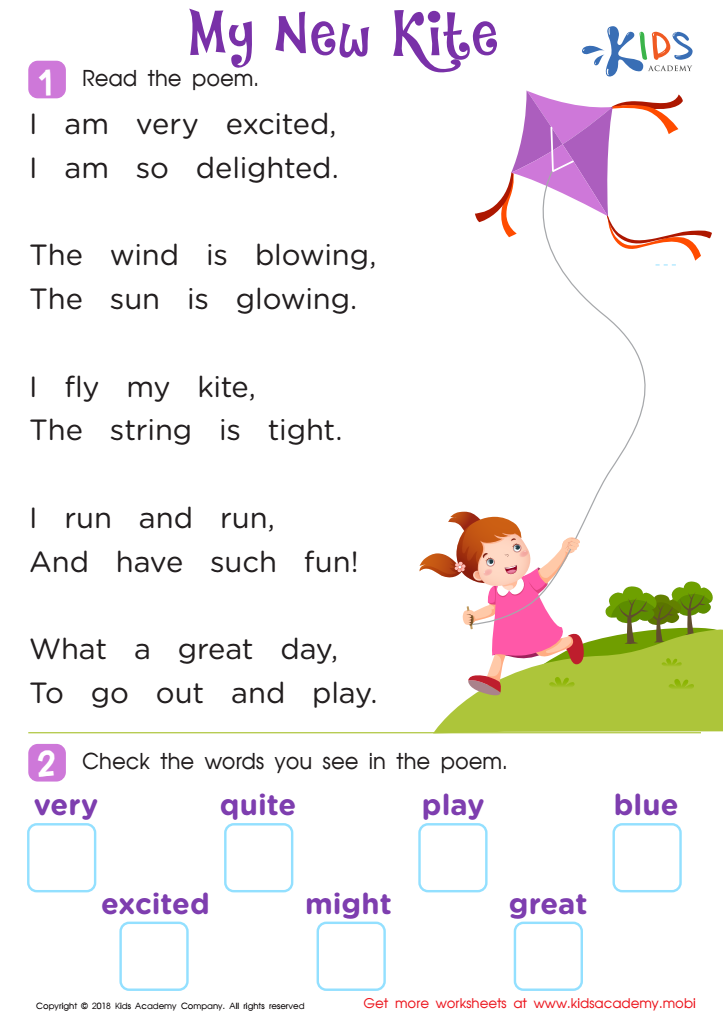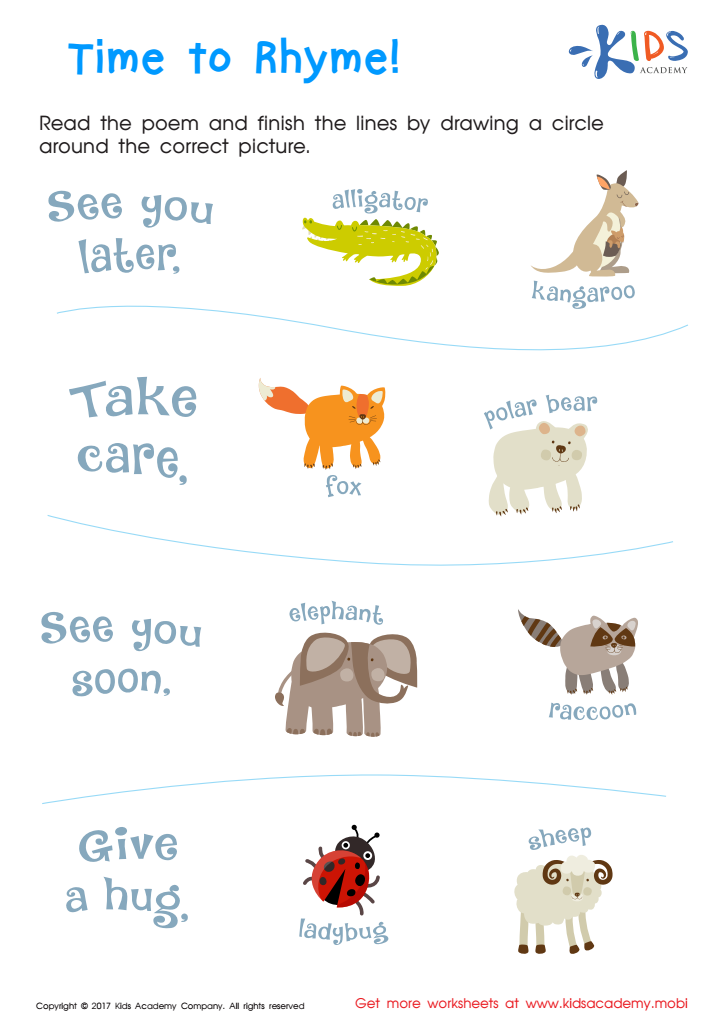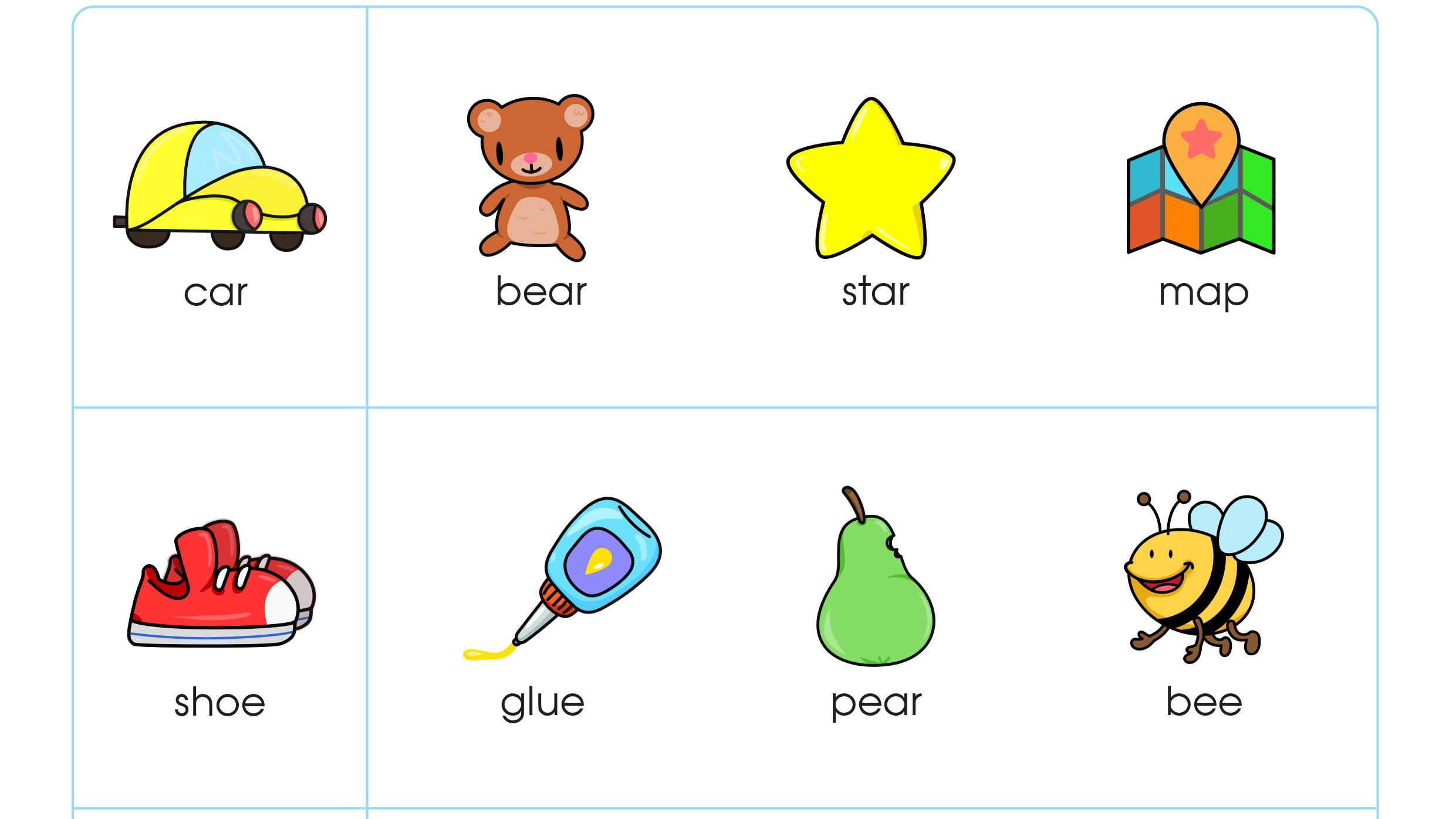Reading comprehension Normal Rhyming Words Worksheets for 6-Year-Olds
4 filtered results
-
From - To
Enhance your 6-year-old’s reading skills with our Reading Comprehension Normal Rhyming Words Worksheets! These engaging, age-appropriate printables are designed to boost early literacy through fun rhyming exercises. By identifying and matching rhyming words, children develop phonemic awareness, essential for fluent reading. Each worksheet features colorful illustrations and simple instructions, perfect for keeping young learners captivated. Our expertly crafted activities not only improve reading comprehension but also expand vocabulary and encourage a love for reading. Ideal for classroom use or at-home practice, Kids Academy’s worksheets provide a solid foundation for your child’s educational journey. Start exploring today!


Poem: My New Kite Worksheet


Rhyming Words Rhyming Worksheet


First Words: Picture Rhymes Worksheet


Time to Rhyme Rhyming Worksheet
Reading comprehension and familiarity with rhyming words are critical for 6-year-olds, forming the foundation for effective communication and lifelong learning. At this stage, children transition from recognizing individual letters to understanding short sentences and texts. Strong reading comprehension skills enable them to grasp stories, follow instructions, and engage more confidently in classroom activities.
Exposure to rhyming words can significantly enrich this developmental phase. Rhymes assist with phonemic awareness, allowing children to discern and manipulate individual sounds within words. This capability is a precursor to successful reading and spelling, serving as the groundwork for more complicated literacy skills. Rhyming also makes language learning engaging and memorable. Fun, repetitive structures found in rhymes can bolster vocabulary and make pronunciation practice enjoyable, which is vital for young learners who are still mastering basic language elements.
Moreover, these skills extend beyond academic walls, facilitating smoother social interactions and improved problem-solving abilities. When parents and teachers prioritize reading comprehension and incorporate rhyming activities, they provide children with tools that foster cognitive development, creative thinking, and emotional intelligence. Hence, nurturing these elements in 6-year-olds isn’t just about passing tests; it’s about equipping them for a successful, well-rounded future.
 Assign to My Students
Assign to My Students














